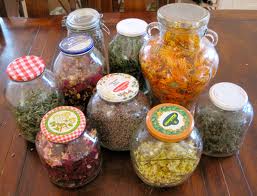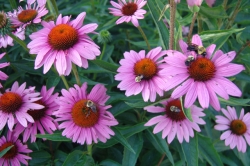It is generally accepted that prescription medications may have side effects, and there is also the belief that herbal medicines are more desirable, as they cannot possibly have dangerous side effects.
An anonymous survey of rheumatology patients in the United Kingdom shed some light into the use of over-the-counter herbal remedies: nearly half of the patients (40%) had used herbal remedies in the past six month in the hope of enhancing their health. Trouble started for one in ten patients who took an herbal remedy that could negatively interfere with their traditional medicines. Dr. Wendy Holden of the Nuffield Orthopedic Center in Oxford, the author of this study, reported that the risk is especially high for rheumatology patients who take anti-inflammatory drugs in combination with herbs. The traditional medicines do have a risk for gastrointestinal bleeding, however the additions of herbs like ginkgo biloba, ginger, devil’s claw and even garlic can increase the anticoagulant effect and bleeding may be the consequence. Some patients who reported the use of Echinacea were increasing the risk of a liver disease. Of those patients who took a potentially harmful treatment combination 92% were unaware of the risk. Less than half had mentioned to their physicians that they used herbal medications in combination with their prescription medications.
Herbal medicines are powerful and their effects and side effects have to be taken into consideration. It is important for the patient to mention every medication, even the seemingly harmless over-the-counter herbal remedies, to the treating physician, as the mix may be not a winning combination, but one that is hazardous.
Reference: The Medical Post, May 10, 2005, page 8
Last edited December 12, 2012







